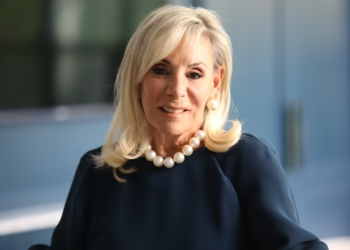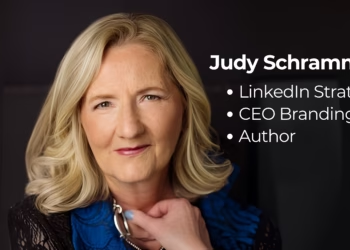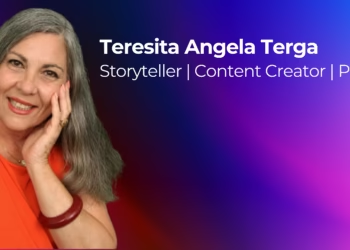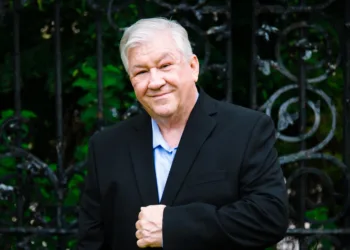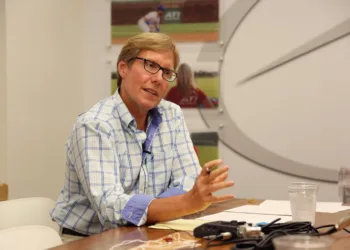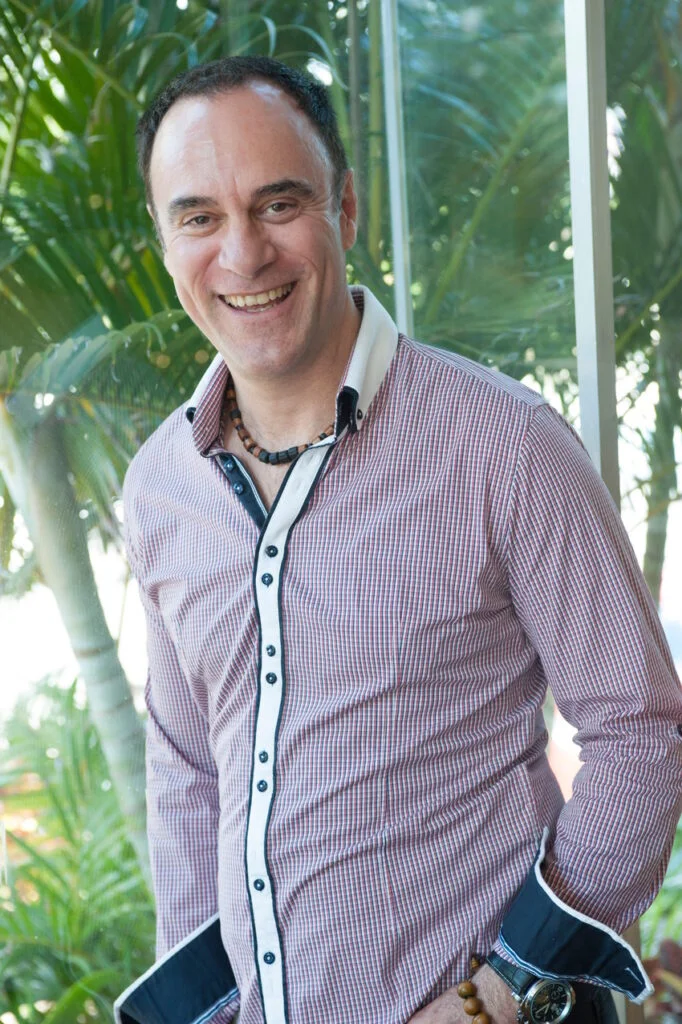
Jeremy Britton started his first business at age 19. Over the next few years, he created 13 startups, including several financial services businesses, one or two failures, and $5000 business that was later sold for six figures. In his twenties, Jeremy worked up to 76 hours per week, but in the last 15 years, he has specialised in creating businesses that can be managed in less than 24 hours per week. With 20+ years experience in financial planning, Jeremy became a best-selling author on investment and business, and then applied his talents to cryptocurrency. In 2016 he co-founded the world’s first diversified crypto mutual fund, making crypto investing safe and simple for anyone. The Bostoncoin portfolio has outperformed Bitcoin every year for 7+ years.
Would You like a feature Interview?
All Interviews are 100% FREE of Charge
Table of Contents
2021 and 2022 has been a tough year for business around the globe. In your experience can you share how businesses prosper in 2023?
Many of Bostoncoin’s competitors went bankrupt in 2022, or laid off massive amounts of staff. We survived because we did not go “too big too soon”. Whilst other companies were sponsoring sporting arenas or paying celebrities, we simply kept costs down and concentrated on quality. Business success is a marathon, not a sprint.
Legendary businessman and investor Charlie Munger, who has been in business for 60+ years says if you want to survive and thrive, avoid “liquor, ladies and leverage”. I would add my own L-word to that list “leases”. Businesses and economies run in cycles, and will go up and down every few years. Many people come unstuck by locking themselves into leases of cars, premises or business equipment, and are not prepared when the environment changes. Be flexible. If you cannot afford to buy the tools you want, then maybe start smaller, or look for an alternative affordable solution.
I have had plenty of opportunities to upgrade, but I still drive the same car I bought in 1999. Cars are depreciating assets and do not really add value to your business. Work from home if you can, or find a small shared office with a month-by-month lease. Real estate goes up in value over time, and your business should also, whilst the majority of technology and equipment will go down, so be frugal with depreciating items.
The economy has been turned on it’s head in the wake of the pandemic. What should businesses focus on in 2023?
Disruptive businesses have always done well. General Motors, AirBnb, Uber, Apple and others did not invent anything new, they just took steps to make an existing product or service different and better. You do not need to invent a new widget; merely be aware of the shortcomings of other widgets. Look at what makes you dissatisfied, or listen when others say “I wish that XYZ would be better at ABC…” You may not be able to solve all the problems, but if you think big, do what you can, and outsource the rest to experts, you can change the world for the better.
What are the pro’s & con’s of working from home and have you any first hand experience?
I have worked from home since 2005, long before it was cool. Almost 20 years ago, I rented a large office on the main street overlooking the ocean. In a twelve-month period, we had a total of two (2) clients come into the office! All the rest of our meetings were held on the phone, via video calls, in a coffee shop or the client’s premises. Rent is a massive cost for any business, and if you can manage to retain professionalism whilst having people work from home, it will give you a lot more funds to make your product or service even better. For those who lack the discipline to work from home, shared office space may be a viable low-cost option.
How can business owners combat the rise of inflation and what have you done that you can share?
For around a decade I worked from home on the beautiful Sunshine Coast, and had only 2-3 in-person clients; the rest were video calls. I decided to become a digital nomad and went to work in Bali for two years, fully remote and digital. Flying overseas, I could only take my laptop and a couple of bags, so I let go of things like printers, scanners, etc… Snail mail to Indonesia was slow and unreliable. I discovered technology for digital signatures, paperless office options, mailscan and other options. This cuts costs significantly, speeds things up, and also helps the environment. Times of inflated prices or shortage of resources have also proven to be the times when amazing inventions and breakthroughs occur. I believe that there may occasionally be shortages of cash or resources, but there is never a limit to human ingenuity or resourcefulness.
In the last 5 years we have seen the rise to Cryptocurrency, Blockchain, NFT’s, Digital Marketing and many more! What do you think will impact the world most in regards to online selling?
As a billion-dollar crypto hedge fund manager with almost a decade of experience, I will be the first to admit that 80-90% of crypto projects are rubbish; like a stock market that was set up by first-graders. However, I believe that 5-10% of crypto projects will change the world for the better because they are genuine solutions that fix real-world problems.
Bitcoin can send the value as quickly and cheaply as sending email, and, being a finite commodity, is a vast improvement over other stores of value such as gold or cash. Some other blockchains can run more quickly and cost-effectively than traditional banking systems, which is why Visa, Mastercard and Amex are all getting involved in crypto. In Australia, three of the four largest banks are working on digital currencies, and Amazon is planning a digital Euro.
The underlying blockchain technology is truly revolutionary tech and will change the way we run the world, in as much as the internet revolutionised millions of retail and service businesses.
Whilst many people think that cryptocurrency is “anonymous”, all transactions can be seen by everyone at all times on the blockchain. Blockchain utilisation can work to dramatically minimise theft, corruption, bribery, market manipulation, and a lot of white-collar crime that occurs on Wall Street, in charities, and in governments. The transparency of the blockchain can also assist to eliminate “green-washing”, deceptive marketing, and outright fraud in many businesses, by having a public trail of exactly where goods were sourced, and where profits are heading. I support openness and honesty in business, and blockchain makes this far easier.
On a more subtle note. If you could have dinner with three people, dead or alive who would it be and why?
I would love to sit down with Jesus, Buddha and Socrates, and compare notes. None of these people ever wrote a book, and we have relied on stories told about them by others. How much of their life story, philosophy, and teaching was factual, and how much was embellished or added later?
Was Jesus a rebellious Jewish pharisee who wanted to eschew the 613 prohibitive mitzvah laws, and give people two commandments rather than ten? Was he a miracle worker, faith healer, hypnotist or did he have advanced medical knowledge that was later exaggerated? As someone who apparently preached “love for all”, how does Jesus feel about those who use his name to condemn homosexuals, immigrants or other minority groups?
Was Buddha a rebellious Hindu who questioned authority and sought truth through enquiry and common sense rather than unthinking tradition? How many of the teachings and sayings attributed to him were created by others? What type of questions would he be asking in today’s world? Was he a dog or cat person?
Any conversation with Socrates would be enlightening. Even 2500 years later, many people use his methods to inspire creative thinking and problem-solving. (I should say “alleged methods” because what was written down by others may not be verbatim.)
If those three have prior commitments, I would invite other “Renaissance” people who questioned the official narrative and sought their own answers, such as Leonardo da Vinci, Nikola Tesla, Jacques de Molay, and whoever really wrote the gnostic gospel attributed to John (possibly Mary Magdelene).
Reading is still one of the most popular ways to learn anything. What is your most recommended book(s) by who and what did you learn from them?
I used to read only non-fiction, as I wanted to improve my life, business and financial situation by emulating those who had already done so. There are millions of great autobiographies, biographies, personal development and business development books; it is easy to find great role models that you admire and spend a week learning lessons that may have taken them decades to learn. In later life, I realised that fiction books encourage empathy and creative thinking, and can make us more “human”. No matter how smart you are, you will always need to interact with other humans, so it is good to explore drama and emotion and learn from those also.
A book I recommend to everyone who is in sales or in business is, surprisingly, “Green Eggs & Ham” by Dr Seuss. Yes, it looks like a children’s book, but it teaches persistence, patience, flexibility and perseverance. Get the book. Read it. It will change your life.
I also like what I call “parabolic” books: they appear to be a mere story but contain a lesson or parable, and can improve your life in parabolic ways. Examples would include “WINK” (also known as “WINK and Grow Rich”) by Roger Hamilton, “Who Moved My Cheese?” and “Hot Frog: Cool Frog”. These easy to digest stories can be read 10-12 times and you can learn a different lesson every time.
What is your purpose for getting out of bed each day and what do you aim to achieve in the future?
My life purpose is “Abundance through Education”. I had a standard schooling upbringing (“schooling” fish all do the same thing), and my true education came after I left the traditional school system and learned about the real world of business, money and investment. For several years I volunteered in high schools, teaching kids who did not fit in at school, that there may be an alternative to getting a degree and a traditional job. Many of these students went on to start their own businesses. These days I have less time available, so I outsource a lot. My first book aimed to distil the things I learned over 15+ years in financial services and business into a few hundred pages that could be accessed by anyone anywhere in the world for under $5. We also support entrepreneurial education in emerging nations where there is a lot of unemployment. Over the last few years, we have sponsored over 200 000 children to create SME businesses in Africa. Going forward, I hope to add a few zeroes to the number of lives we impact. Making a billion dollars may feel good for a while, but knowing that you have impacted a million lives for the better, or even a thousand lives; that can make you feel good forever.
Follow on Social Media
Want to benefit from our PR Services?
PR Services for business professionals to make an impact
Author
-
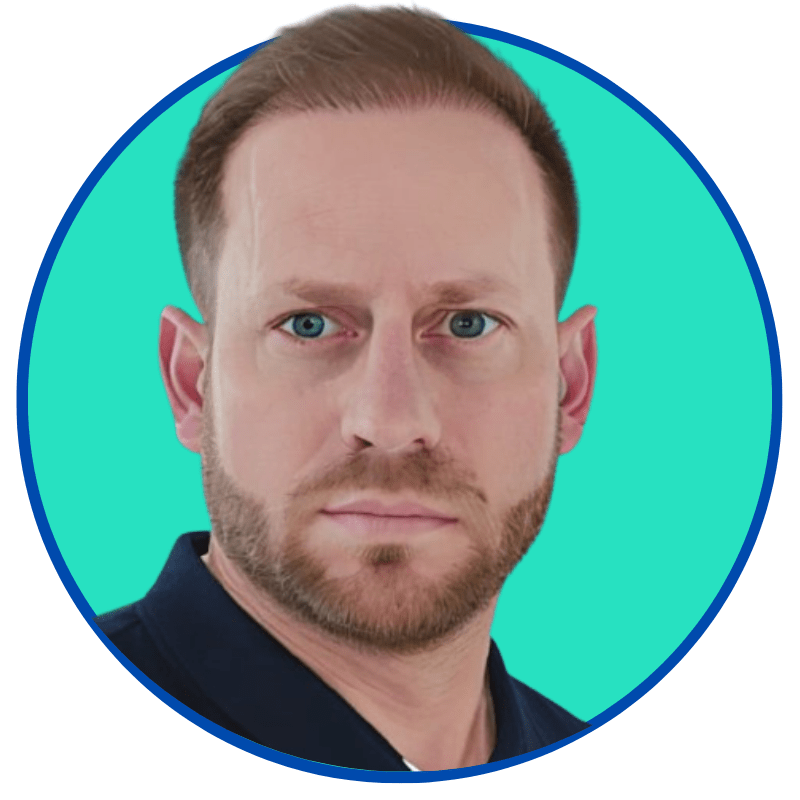
Russ Turner
Founder & Editor at GallantCEO.com | Media enquiries, Guest Posting, and Interviews please contact via LinkedIn.
"Elevate Your Brand with an Exclusive Feature Interview!"

